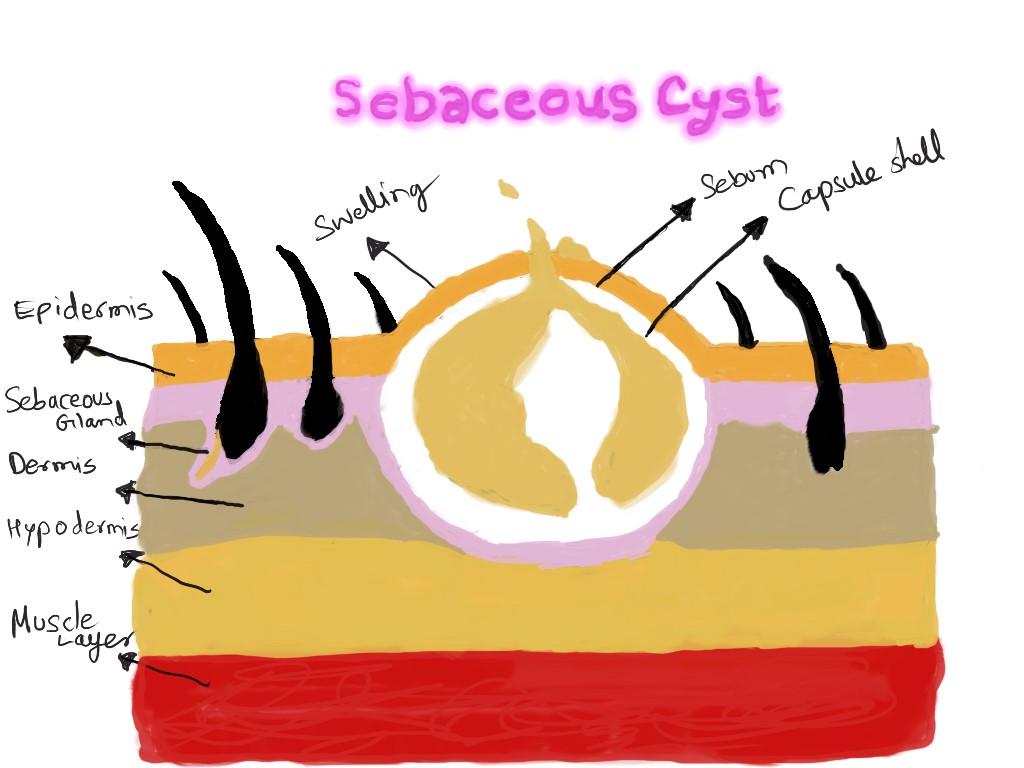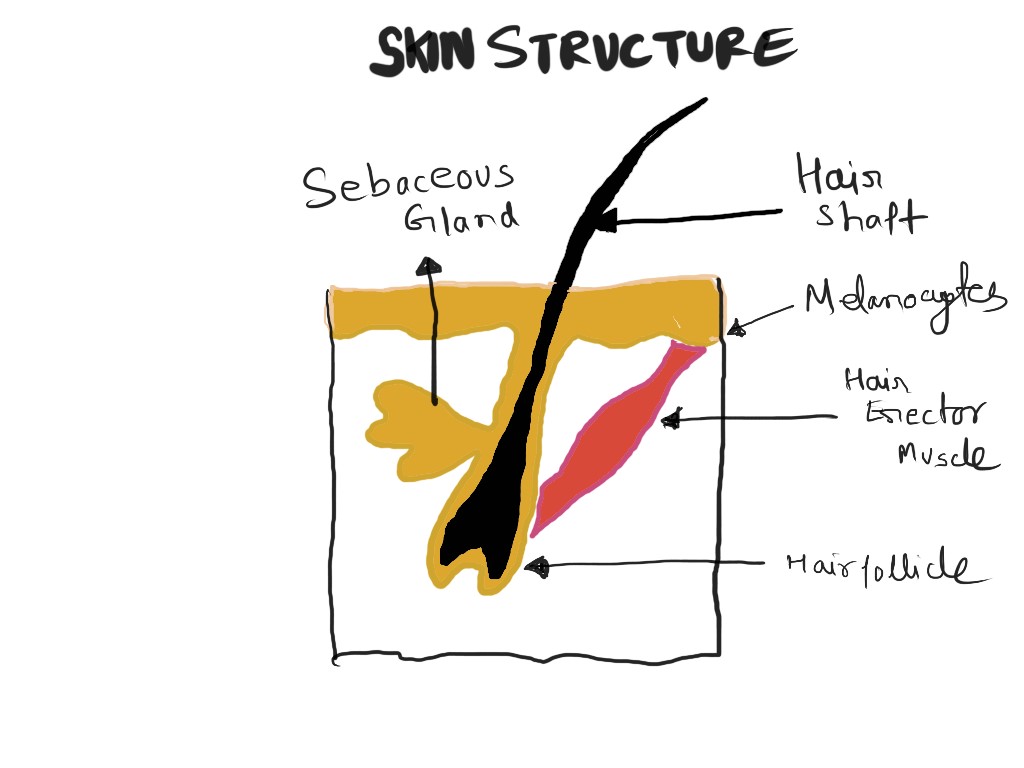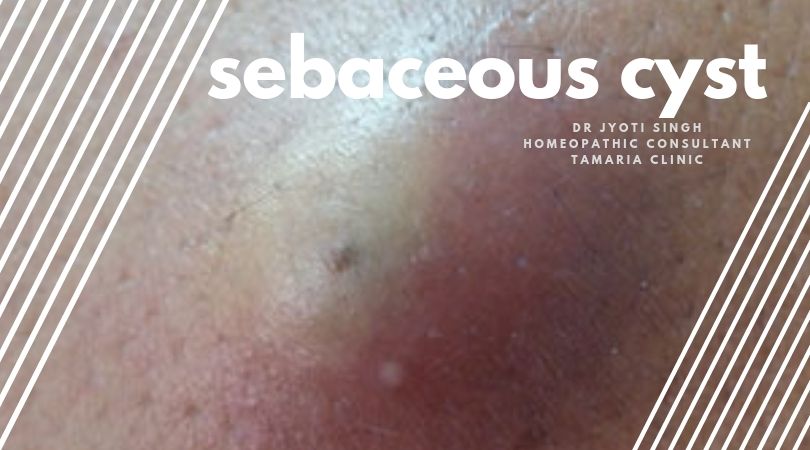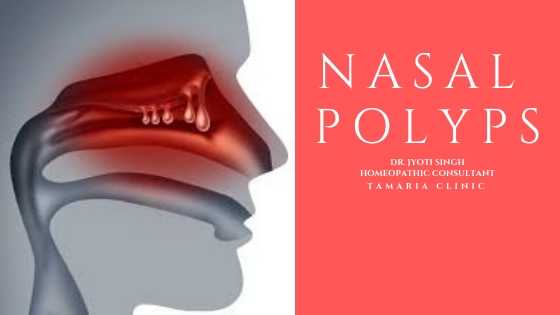THE DEFINITIVE GUIDE FOR THE TREATMENT OF SEBACEOUS CYST
WHAT IS SEBACEOUS CYST ?
Sebaceous cysts are common non-cancerous cysts of the skin which grow slowly under the skin and is easily movable. The primary symptom of a sebaceous cyst is a bump that can occur on any part of the body and the cyst may contain liquid or semiliquid material. Although the cysts are not life-threatening but may become uncomfortable if the size grows much. The sebaceous cyst may be an epidermoid (originating from the skin) or pilar cyst (originating from the hair follicles). Sebaceous cysts can be found anywhere in the body except for palms and soles. The usual size of a sebaceous cyst varies from 1cm to 5cm.
RISK FACTORS
Sebaceous cyst has no relation with age, race and ethnicity. risk factors for sebaceous cyst include:
1. Injury to skin, wounds or surgery
2. Using steroids
3. Testosterone administration
4. Acne can also lead to formation of sebaceous cyst
COMPLICATIONS
Complications of sebaceous cysts are:
1. The cyst may get infected causing pain
2. The cyst can also rupture
3. The cyst can also show inflammation which increases the complications
SYMPTOMS AND CAUSES
SYMPTOMS
1. A sebaceous cyst is a small bump seen under the skin and is usually found on the face, neck, scalp, trunk, back where they can be easily seen except for palms and soles
2. Sebaceous cysts are often filled with keratin with a blackhead at the center.
3. A sebaceous cyst is usually soft to touch and varies in size from 1cm to 5cm.
4. Small sebaceous cysts are mostly painless but larger cysts can be uncomfortable or painful especially when infected.
5. Hair also disappears from the area of the sebaceous cyst.
CAUSES
Sebaceous cysts originate from the sebaceous glands. The glands secrete the oily matter (sebum) that helps to lubricate the skin and the hair. When these glands are obstructed then secretions are accumulated inside producing sebaceous cysts. Sebaceous cysts can also arise from hair follicles also.
DIAGNOSIS AND TREATMENT
DIAGNOSIS
Visual examination is enough to diagnose of sebaceous cyst. Further investigations can confirm the diagnosis.
1. Study of the cell scrapping from the skin above the cyst can help in diagnosis.
2. Ultrasounds help to identify the contents of the cyst.
3. CT scans help to find the route for the surgery and to spot abnormalities.
4. Punch biopsy involves the removal of a small amount of tissue from the cyst to be examined in a laboratory for signs of cancer.
TREATMENT
Conventional treatment for Sebaceous cyst includes surgery, antibiotic ointment, minimal excision, a laser with punch biopsy excision but these treatments are not permanent as they can regrow and come back in more fierce form. Thus homeopathic treatment is the best treatment for Sebaceous cyst.
MANAGEMENT
1. Maintain hygiene and keep the area clean.
2. Don't scratch or irritate the cyst by friction.
3. Don't squeeze or prick the cyst
4. In the area of cyst avoid tight clothing
HOMEOPATHY MANAGEMENT
There are medicines like Agaricus, baryta carb, benzoic acid, Calcarea carb, Calcarea fluor, graphities, hepar sulph, lycopodium, silica, thuja, etc which can remove the Sebaceous cyst completely without recurrence. But medicine depends on the presentation of the case and should never be taken without consulting a registered homeopath. Homeopathy has a permanent cure for Sebaceous cyst.
DO’s AND DON’Ts
DO’s
1. Maintain hygiene and keep the cyst area clean
2. Take a healthy diet
Don’ts
1. Cysts drain naturally so don’t squeeze the cyst.
2. Don't wear tight clothes
3. Avoid friction or scratching over the cyst.




Comments
We have received your comment , Thank You !